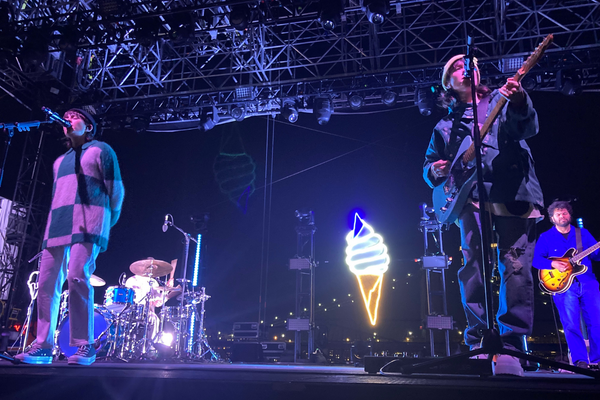2022 was quite the year for indie pop duo Tegan and Sara. In October alone, a TV adaptation of their memoir High School premiered on Amazon Freevee; the pair released their tenth studio album Crybaby to critical acclaim; and the duo embarked on their first tour in three years. But being in the entertainment industry for the last two decades has not always been easy.
Part of that stems from being queer women in the entertainment world. “Our career has been about negotiating the lines of what it’s like to be women, queer women, androgynous queer women, and siblings,” Tegan tells Tagg. “Those were hard things to navigate, especially in the years we were coming up, which were so rife with misogyny, sexism, and homophobia.”
Since Tegan and Sara Quin got their start, the industry has become more inclusive, and queer musicians have become more visible with artists such as Phoebe Bridgers, girl in red, Janelle Monáe, Hayley Kiyoko, and MUNA making it big. Yet in some ways, Tegan feels like the way queer artists are covered in the press can be unfair because bands like Tegan and Sara are pigeonholed as lesbian musicians, as if their music doesn’t also appeal to straight people.
“We are writing universally, relatable pop songs. Why can’t we be for everyone?” says Tegan. “No man has their sexuality in the headline. It still happens to us in that way.”
Like in the music industry, queer representation on television is also changing, and the pair is grateful to have had the chance to bring their memoir High School to the screen.
Before the book had been published, “the true Tegan and Sara origin story had never really been told,” Sara says. “We often think of our story starting when we were just out of high school and got signed by Neil Young’s record label. But really our true Tegan and Sara band origin story started in high school.”
Under the direction of Clea DuVall and with Tegan and Sara as developers and producers, High School explores themes of queer adolescence. “I’m really excited that we get to be part of telling a queer story for television,” says Tegan. “And it’s a story you don’t get to see that often. It’s about identity and crushing on your friends and the music itself tells a story about queer identity.”
One thing that makes the show unique from their book is that is that parts of the story are fictionalized. For example, there is one poignant scene in the show where Sara has a fight with her stepfather about using a pejorative term to describe gay people, but in real life, the scene actually happened to Tegan in a different setting.
“I felt like I was watching my life on screen,” jokes Sara. “But I had to remind myself that it was Tegan that had this conversation with our stepdad.”
Television and music are just two of the creative mediums the pair has embraced. Next spring, Tegan and Sara will release their second book, Junior High, which is a graphic novel for middle grade students that is based on a fictionalized version of their junior high experience. Tegan also says they are also working on developing additional TV ideas and will always be producing music.
When reflecting on the state of queer representation in the media, Sara acknowledges that there is more work to do. “It does feel to me that there has been a real uptick and there are kinds of folks having their stories told and there is space being made for people who didn’t use to get that support, attention, and visibility,” says Sara. “If we look hard enough, we can find representation for ourselves now . . . and there’s always a need for more.”

